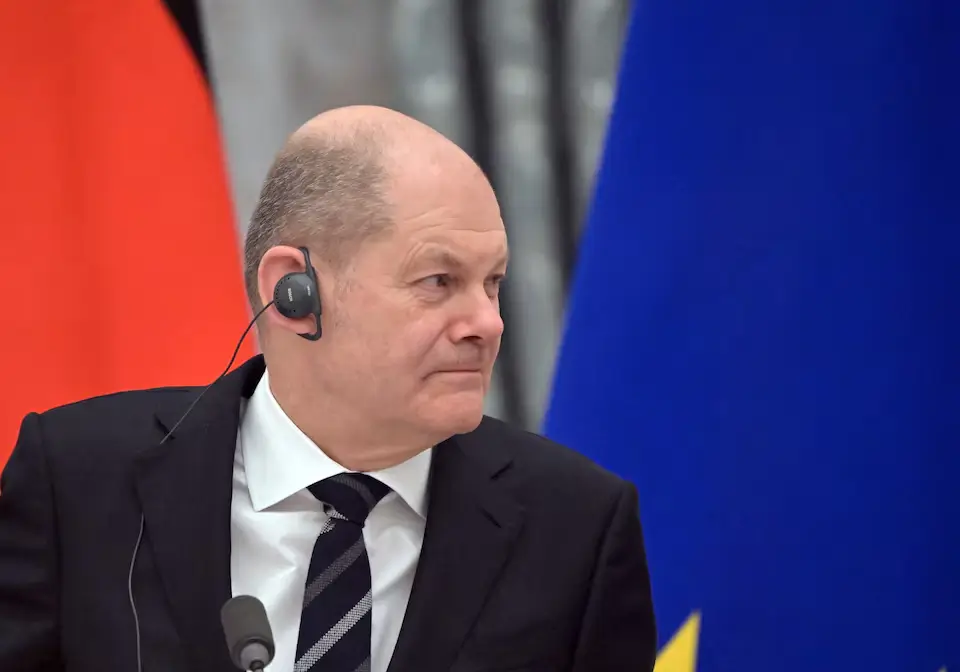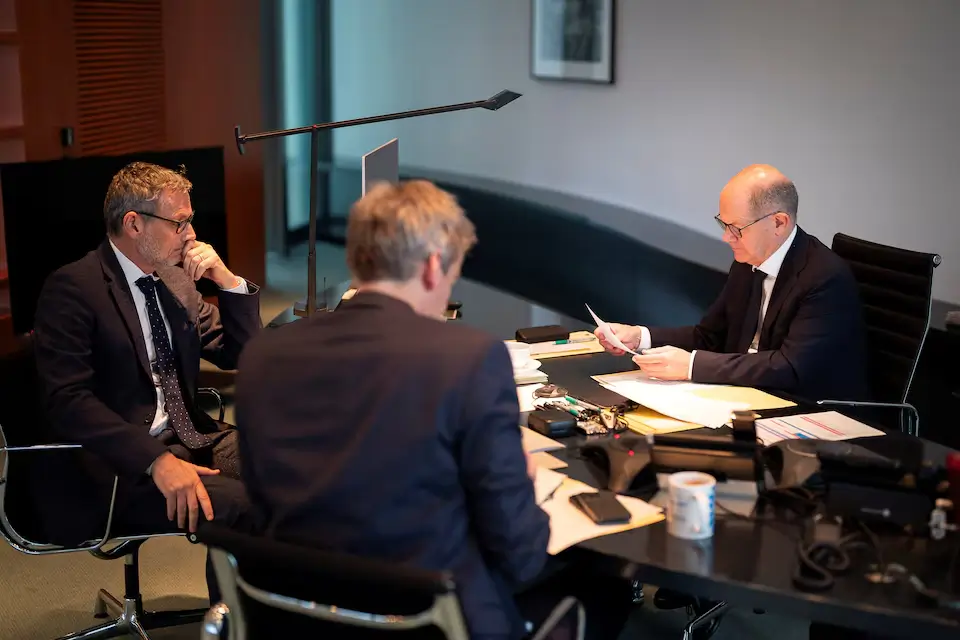In their first phone call in nearly two years, German Chancellor Olaf Scholz pressed Russian President Vladimir Putin to withdraw his forces from Ukraine and enter negotiations with Kyiv. The conversation came at Berlin’s request, according to the Kremlin.
- Scholz “urged Russia to show willingness to enter talks with Ukraine with the aim of achieving a just and lasting peace,” a German government spokesperson said in a statement.
- The chancellor also “stressed Germany’s unbroken determination to back Ukraine in its defense against Russian aggression for as long as necessary,” the spokesperson added.
However, the call was met with skepticism from Ukrainian President Volodymyr Zelenskyy, who cautioned Scholz against engaging with Putin.
- “The president (Zelenskyy) said this would only help Putin by reducing his isolation. Putin doesn’t want real peace, he wants a break,” a source in Zelenskyy’s office told Reuters.
The outreach comes as Ukraine faces mounting challenges on the battlefield, with shortages of arms and personnel. Russian forces have made steady advances, adding to concerns among Kyiv’s Western allies.
Divergent Aims Between Russia and the West on Ukraine
In the call, Putin told Scholz that any resolution to the war must account for Russia’s security interests and “reflect new territorial realities” – an apparent reference to Moscow’s annexation of Ukrainian regions.
- The Kremlin said Russia was open to discussing energy deals with Germany, which was previously heavily reliant on Russian gas before supplies were disrupted.
Germany has provided Ukraine with €15 billion in financial, humanitarian and military aid since the full-scale invasion – making it Kyiv’s second-largest backer after the U.S.

However, the future of American support under a potential Trump presidency is uncertain. Trump has suggested he could put a swift end to the war, without explaining how.
Domestic Pressures on Scholz Ahead of German Election
The call also comes ahead of a snap election in Germany on February 23, where Scholz’s Social Democrats face a stiff challenge from left-wing and far-right parties opposed to Berlin’s backing for Ukraine.
- “Scholz believes his communication with Putin would strengthen his hand internally, before the election,” wrote Daniel Szeligowski of the Polish Institute for International Affairs on social media.
Scholz plans to brief Zelenskyy, Germany’s allies, partners and the heads of the European Union and NATO on the outcome of the call. Putin and Scholz agreed to stay in contact, officials said.
Despite the outreach, Ukraine’s president remains skeptical about the value of negotiations with Putin at this stage of the conflict. Kyiv’s Western partners, however, appear intent on keeping communication channels open with Moscow.

